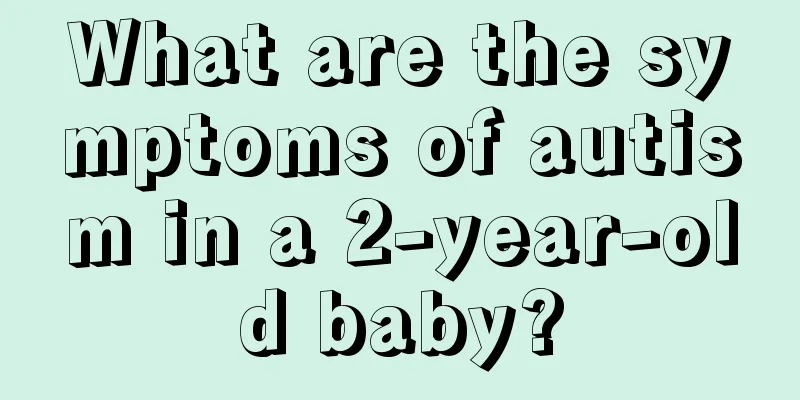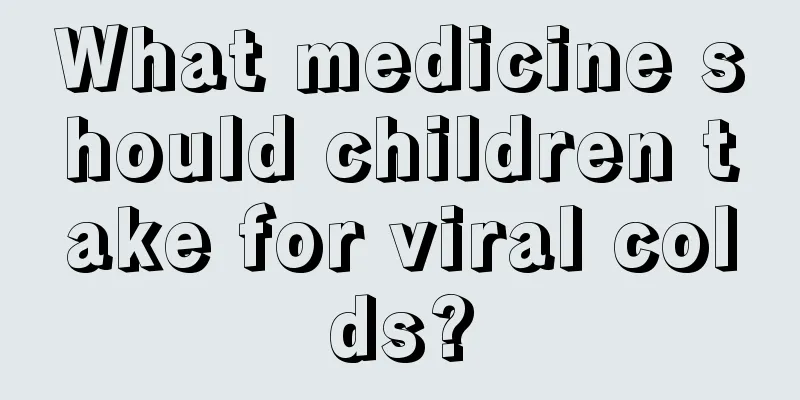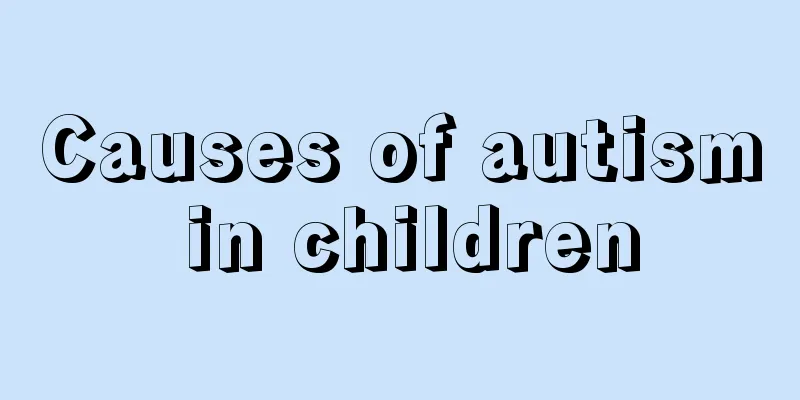What are the symptoms of autism in a 2-year-old baby?

|
Children are at high risk of autism, and the disease is extremely harmful to children. The most frightening thing is that many parents lack understanding of autism, so they don’t notice the early stages of autism in their children. This can seriously delay the treatment of the disease and cause children to develop severe autism, which makes the problem more difficult to solve. So what are the general symptoms of autism in children? Symptoms of autism in 2-year-old babies: If your child cannot speak at the age of 2, does not like to play with other children, and has some strange behaviors, please pay attention to whether your child has autism. Symptoms of autism in 2-year-old children include: 1. Unstable sleep, sometimes even staying awake all night. 2. Do not chew food, only eat liquid food or porridge-like food. 3. Like to look at fixed objects and have stereotyped hand movements (such as rotating, flipping, knocking, scratching, etc.). 4. Muscle relaxation and frequent falls. 5. Lack of eye contact, just glance at people and then look away. 6. Lack of curiosity and feeling uneasy or afraid of changes in the environment. 7. The child may be able to parrot words, but the speech is slow and the child has no understanding of the words. Three symptoms prove that your child has autism (1) Social relationship disorder. The extreme loneliness and social withdrawal of most autistic children are more obvious. They live in their own world. They don’t respond when you call them and they don’t listen when you talk to them. It is as if the people and things in the outside world do not exist. They are not interested in them and their faces have no expression. They don’t care about their parents’ happiness, anger, sorrow or joy. (2) Language communication barriers. About 50% of autistic children have underdeveloped language since childhood and remain mute throughout their lives. Another 50% of children can say fewer or more words. Generally speaking, their language development is later than that of normal children. They often begin by repeating words that have been said by others, which have no meaning to them, like a parrot. Some children also repeat words they have heard in the past, which is called "delayed echolalia." Other children continue to develop and may say words or phrases that have real meaning. Such as "candy", "go out and play", etc. (3) Narrow interests and repetitive movements. Some autistic children are not very interested in riding a tricycle, but spend a long time turning the wheels; or they buy plastic slippers but do not wear them and like to put them in their mouths to chew. They often put their hands in front of their eyes and turn them over. They always take the same route to and from the park, and they have a very good memory of the route and will never forget it once they have walked it. They also like to ask their parents the same question over and over again and require their parents to answer with the same words, otherwise they become irritated. They often insist on doing certain things the same way every time and resist change. They often love certain items to the point of being inseparable. The best age to judge autism in babies is 1 to 2 years old Although the youngest autistic patient is only 3 months old, it is not easy to tell whether a baby a few months old has autistic tendencies. Generally, parents can only notice abnormal behavior of their baby after the baby is one year old. Child development and behavior experts say that the best age to judge is 1 to 2 years old. If your child cannot speak by the age of 2, you should immediately have an autism test after excluding problems with the ears or vocal organs. For children diagnosed with autism over the age of 5, the impact of autism is greater. There are even patients in their 20s who cannot use the simplest tools in life and yell when something goes wrong, not to mention going out to work or having a normal relationship. |
<<: Why do children have convulsions?
>>: How to teach autistic children to speak?
Recommend
Are sleeping bags good for newborns?
Children are naturally active, so they will not s...
How to remove birthmarks on children
Many people are born with birthmarks, some appear...
What is the cause of the hard lump in the baby girl's breast?
Because the fetus is affected by the mother's...
What to do if your child has high jaundice
People at different stages may have different phy...
Symptoms of dampness and poison in children, be alert after reading
The disease of dampness and poison in the little ...
What should I pay attention to when my 1-year-old child has sinusitis?
Some children may suffer from sinusitis due to al...
Children with cold hands and feet and fever
We all know that babies often have fever when the...
Baby coughs with throat
Parents will be very worried if their baby coughs...
Symptoms of otitis media in children
Otitis media is a very common ear disease, especi...
Treatment of toxic erythema of the newborn
I guess everyone is still not familiar with the d...
Causes of gray hair in young children
As people age, their hair naturally turns white. ...
How to quickly eliminate children's allergies
Baby allergies are different from adult allergies...
What should I do if my two-year-old baby has rough skin?
Many mothers will find that their baby's skin...
What are children's self-boundaries?
Children also have their own world, so many paren...
Why does a newborn’s stool smell sour?
We all know that newborns need a lot of sleep, an...









